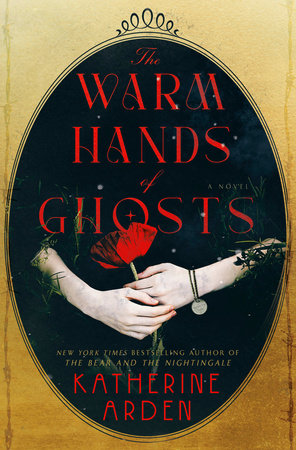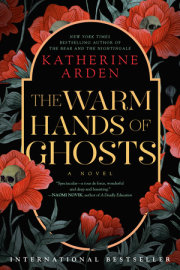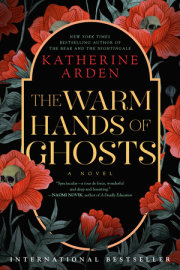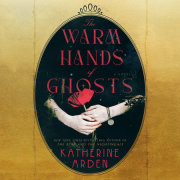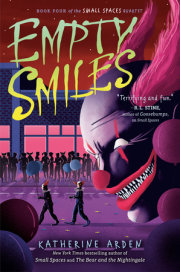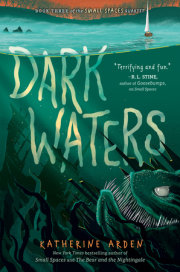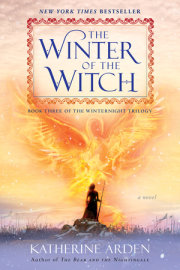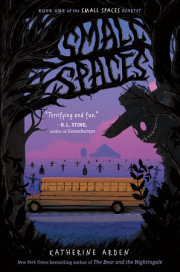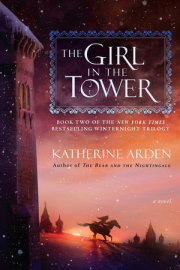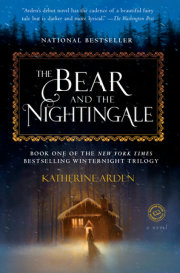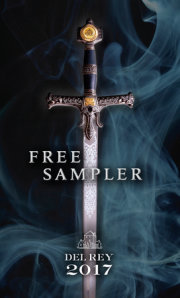The Beast from the SeaHalifax, Nova Scotia, Canadian Maritimes
January 1918Freddie’s clothes came to Veith Street instead of Blackthorn House, and the telegram that ought to have preceded them didn’t reach Laura at all. She wasn’t surprised. Nothing had worked properly, not since December.
December 6, to be exact. In the morning. When the Mont Blanc had steamed into Halifax Harbor, oil on deck and high explosive in her hold. She’d struck a freighter, they said, and the oil caught fire. Harbor crews were trying to put it out when the flames found the nitroglycerine.
At least that was how rumor had it. “No, I don’t doubt it’s true,” Laura told her patients when they asked, as though she would know. As if, after three years as a combat nurse, she’d learned about high explosive from the things it wrote on people’s skin. “Didn’t you see the fireball?”
They all had. Her father had been in one of the boats trying to drown the blaze. Halifax afterward looked as if God had raised a giant burning boot and stamped. Fresh graves in Fairview sat snug beside five-year-old headstones from the Titanic, and the village of the Mi’kmaq had vanished.
And the post was a disaster. That was why she’d not heard from Freddie. He was her brother, he was a soldier; of course a backlog of his letters was lost in a sack somewhere. She had no time to think of it. She had too much to do. The first makeshift hospital had been scraped together in a YMCA the day after the explosion. The snow was bucketing down and Halifax was still on fire. Laura had walked past the uncollected dead. Shut their eyes when she could reach them, laid a hand once on a small bare foot. Three years of active service, and she was familiar with the dead.
Familiar too with the sight of an overrun triage station, although it was her first time to be met not with soldiers, but with parents clutching their burnt children. Laura had taken off her coat, washed her hands, reassured the nearest wild-eyed mother. Had a word with the overwhelmed civilian doctor and set about organizing the chaos.
That was a month ago—or was it six weeks? Time had stretched, as it did when wounded poured in during a battle, reduced not to minutes or hours, but to the pulse and the breath of whoever was under her hands. She slept standing up, and told herself that she was too busy to wonder why Freddie didn’t write.
“That damned virago,” muttered one doctor, half-annoyed, half-admiring. The Barrington hospital was full of willing hands. The Americans, blessedly, had piled a train full of all the gauze, disinfectants, and surgeons in Boston and sent it north. It was January by then, with snowdrifts head-high outside. The gymnasium had been turned into a hospital ward, sensibly laid out, ruthlessly organized, competently staffed. Laura was doing rounds, bent over a bed.
“That harpy,” agreed his fellow. “But she’s forgotten more about dressings than you’ll ever know. She was in the Nursing Corps, you know. Caught a shell over in France somewhere.”
It was Belgium, actually.
“Caught a shell? A nurse, really? What did she do? Dress as a man and creep up the line?”
The first doctor didn’t take the bait. “No—I heard they shelled the forward hospitals.”
A startled pause. Then— “Barbaric,” said the second doctor weakly. Laura kept on taking temperatures. Both doctors stopped talking, perhaps contemplating trying to practice medicine under fire.
“Lord,” the second doctor said finally. “Think all the girls who went to war will come back like that? Cut up, incorrigible?”
A laugh and a shudder. “Christ, I hope not.”
Laura straightened up, smiling, and they both blanched. “Doctor,” she said, and felt the subterranean amusement in her watching patients. She was one of them, after all, born by the harbor, before the world caught fire.
The doctors stammered something; she turned away again. Virago indeed. A fanged wind was tearing white foam off the bay, and her next patient was a blistered little boy. The child wept as she peeled off his dressings.
“Hush,” said Laura. “It’ll only hurt for a moment, and if you’re crying how can I tell you about the purple horse?”
The little boy scowled at her through his tears. “Horses aren’t purple.”
“There was one.” Laura snipped away stained gauze. “I saw it with my own eyes. In France. Naturally, the horse didn’t start out purple. It was white. A beautiful white horse that belonged to a doctor. But the doctor was afraid that someone would see his white horse on a dark night and shoot him. Turn that way. He wanted a horse that would be hard to see at night. So he went to a witch—”
A lurch. “There aren’t witches in France!”
“Of course there are. Be still. Don’t you remember your fairy tales?” Freddie loved them.
“Well, the witches haven’t stayed in France,” the child informed her, in a voice that quivered. “With a war on.”
“Maybe witches like the war. They can do what they like with everyone busy fighting. Now, do you want to hear about the purple horse or not? Turn back.”
“Yes,” said the little boy. He was looking up at her now, wide-eyed.
“All right. Well, the witch gave the doctor a magic spell to make the horse dark. But when the doctor tried it—poof! Purple as a hyacinth.”
The child was finally distracted. “Was it a magic horse?” he demanded. “After it turned purple?”
Laura was tying off the bandages. The child’s tears had dried. “Yes, of course. It could gallop from Paris to Peking in an hour. The doctor went straight to Berlin and pulled the kaiser’s nose.”
The child smiled at last. “I’d like a magic horse. I’d gallop away and find Elsie.”
Elsie was his sister. They’d been walking to school together when the ship blew up. Laura didn’t reply, but smoothed the matted, tow-colored hair and got up. Her brother’s real name was Wilfred, but hardly anyone remembered. He’d been Freddie from infancy. He was serving overseas.
He still hadn’t written back.
“Purple horse?” inquired the doctor-in-charge, passing. Unlike his civilian colleagues, he’d been behind the lines of the Somme in ’16. He and Laura understood each other. They walked off together down the aisle between beds.
“Yes,” said Laura, smiling. “It was early days. Some fool with the RAMC, straight from England. He was assigned the horse, white as you please, got windup about snipers. Tried aniline dye, the poor beast wound up violet.”
The doctor laughed. Laura shook her head and consulted her endless mental checklist. But before she could set off, the three-month-old gash in her leg betrayed her. A cramp buckled her knee, and the doctor caught her by the elbow. Her leg was the reason she was in Halifax, discharged from the medical corps. A bit of shell casing, deep in the muscle. They’d got it out, but almost taken the limb with it. She’d been evacuated on a hospital train.
“Damn,” she said.
“All right, Iven?” said the doctor.
“Just a cramp,” said Laura, trying to shake it loose.
The doctor eyed her. “Iven, you’re a wretched color. When did you come on shift?”
“Flattery, Doctor?” she said. “I’m cultivating a modish pallor.” She didn’t quite remember.
He looked her over, shook his head. “Go home. Or you’ll be in bed with pneumonia. We can manage for twelve hours. Unless you want to go sprawling while holding syringes?”
“I haven’t gone sprawling yet,” she said. “And I still have dressings to—”
She could browbeat most of the staff, but not this one. “I’ll do it. You are not the only person in Halifax who can dress burns, Sister.”
She met his adamant eye, then gave in, threw him a mock salute, and went to take off her apron.
“And eat something!” the doctor called to her retreating back.
The wind struck her in the teeth when she went outside, dried her chapped lips. She pulled her cap closer round her ears. Clouds massed, lividly purple, over the water. She longed to go straight home and drink something hot. But she’d got off early. There was time to go to Veith Street. She hadn’t been there since the explosion.
The wind rippled her skirt, made her nose ache. The task would not improve with keeping. She set off, limping. To her right, the Atlantic heaved under a field gray sky. To her left, the city sloped gently upward, blackened and torn by fire.
Laura Iven was sharp-faced and amber-eyed, her jaw angled, her mouth sweet, her glance satirical, a little sad. She wore a pale blue Red Cross uniform under a shabby wool coat. A knit cap, defiantly scarlet, hid tawny hair chopped short. She walked with the ghost of a brisk, supple stride, marred by the new limp.
Copyright © 2024 by Katherine Arden. All rights reserved. No part of this excerpt may be reproduced or reprinted without permission in writing from the publisher.

